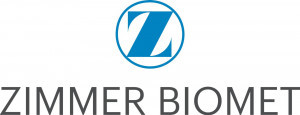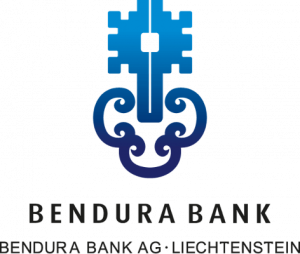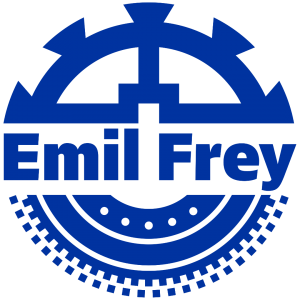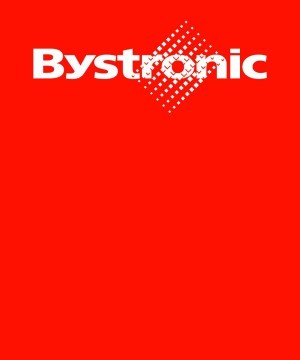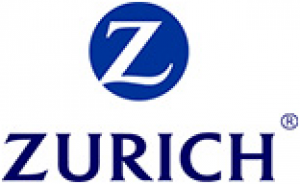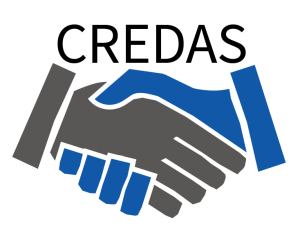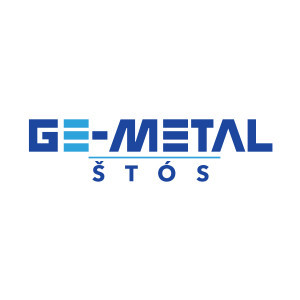Statutes
|
I. BASICS |
|
|
|
§ 1. Name, seat, entry in the Commercial Register at the Ministry of Justice of the Slovak Republic. The name of the association is: HSSR Švajčiarsko - Slovenská obchodná komora (HSSR Chamber of Commerce Switzerland - Slovak Republic); (hereinafter referred to as “Chamber of Commerce”). The Chamber of Commerce is a civil association, pursuant to Act 83/1990 Coll. on Associations in the Slovak Republic (hereinafter referred to as “SR”). The seat of the Chamber of Commerce is at Michalská 12, 811 01 Bratislava. The Chamber of Commerce may set up additional offices.. |
|
§ 2. PURPOSE The purpose of the Chamber of Commerce is to safeguard Swiss-Slovak trade, industrial and economic interests, in particular to promote, plan and facilitate trade and economic relations between Switzerland and Slovakia. It follows the principle of reciprocity. In order to fulfill this purpose, the Chamber of Commerce maintains ongoing contacts with Swiss and Slovakian industrial and commercial companies as well as authorities, trade associations and other institutions as well as with interested personalities. The Chamber of Commerce provides information about Swiss-Slovakian economic relations, as well as related relationships and activities. It may issue a magazine and other publications. This activity is free of charge for members of the Chamber of Commerce. A reasonable fee may be charged for non-members. The Chamber of Commerce can represent Swiss companies at exhibitions and conduct research and market research for these companies. However, the Chamber of Commerce does not carry out any commercial or economic activities. |
|
§ 3. Liability and publicity of the Chamber of Commerce The Chamber of Commerce is only liable for its own assets. Any liability of the Chamber of Commerce for the individual members is excluded. The activity of the Chamber of Commerce has a public and social character. Any activity of the Chamber of Commerce shall be made public by means of regular and written notification to all members. Representatives of the public media may be invited to Chamber of Commerce events. The Chamber of Commerce may publish a magazine in order to achieve full publicity. The board of directors decides whether to publish the magazine. The Chamber of Commerce can also issue other public media (regular publications, bulletins, posters) as needed. |
|
§ 4. Wealth – economic principles The assets of the Chamber of Commerce consist of: a) membership fees
The assets of the Chamber of Commerce are managed by the Board of Directors of the Chamber of Commerce. The funds and assets of the Chamber of Commerce can only be used in accordance with the activities and tasks laid down in the articles of association. The principles of economic efficiency must be observed. The individual member has no claim to the association's assets. The funds of the Chamber of Commerce are deposited on the bank account that has a banking license on the territory of the Slovak Republic. The economic management of the Chamber of Commerce is based on the budget approved by the General Assembly, e.g. independently for each calendar year. |
|
§ 5. Fiscal year The calendar year is the business and accounting year. Accounting is as of December 31st. of the respective year and the Chamber of Commerce is obliged to submit its tax return by 30.3. to be submitted in the following year. The tax return must be signed by the President of the Chamber of Commerce or by the statutory representative. |
|
II. MEMBERSHIP |
|
§ 6. Members Natural and legal persons who are involved or interested in trade and business transactions between Switzerland and Slovakia can become members of the Chamber of Commerce. |
|
§ 7. Honorary members Personalities who have made outstanding contributions to Swiss-Slovak economic relations or to the Chamber of Commerce can be awarded honorary membership by the General Assembly at the request of the Board of Directors. |
|
§ 8. Beginning and end of membership Membership begins with admission. It ends through resignation, death, dissolution of the member or Chamber of Commerce as well as through exclusion of the member. Interest in membership is registered by the Secretariat of the Chamber of Commerce and its approval is submitted to the Board of Directors. The Executive Board decides on admission with a simple majority. If the result of the vote is inconclusive, the chairman has two votes. Admission to the Chamber of Commerce includes acceptance of the statutes. A rejection of the application for admission does not have to be justified. |
|
§ 9. Voting and electoral rights Every member is entitled to vote and vote at the general assembly. Each member has one vote. Legal entities exercise their right to vote by proxy. A member cannot exercise more than three deputies. The representation takes place by means of a written power of attorney. |
|
§ 10. Rights and Obligations of Members Members are entitled to free advice and support from the secretariat in all matters relating to the purpose of the Chamber of Commerce, as well as free delivery of all Chamber of Commerce publications. For time-consuming, special orders, the secretariat may charge fees and also reimburse cash expenses. With regard to the acceptance of any financial means, the Director of the Secretariat will issue a receipt of receipt. The members should support and promote the efforts of the Chamber of Commerce. You must maintain secrecy about confidential Chamber of Commerce matters. |
|
§ 11. Membership Fees The members are obliged to pay annual contributions, which are determined for the current year by the general assembly at the request of the board of directors. Membership fees are due after the request for payment by an invoice sent, e.g. in terms of billing requirements. The members' meeting is entitled to assess the amount of the membership fee every year and, if necessary, to reset it. |
|
III. ORGANIZATION |
|
§ 12. The organs of the Chamber of Commerce are: a) The General Assembly;
A permanent secretariat to be appointed by the board is assigned to the board. The Secretariat is headed by the Director of the Secretariat, with the Director being elected by the Board of Directors. The Director of the Secretariat need not be a member of the Chamber of Commerce. The activity of the secretariat is defined in a separate contract. This contract is to be concluded between the Director of the Secretariat and the Chamber of Commerce. |
|
IV. GENERAL MEETING |
|
§ 13. Supreme Organ The General Assembly is the supreme body of the Chamber of Commerce. The General Assembly should hold its meeting at least once a year and is convened by the Board of Directors. |
|
§ 14. Ordinary General Assembly The ordinary general meeting takes place once a year.
a) Approval of the annual report, the annual accounts, the economic report and the report of the control body, amendment of the articles of association; b) Dismissal and re-election of board member; c) Approval of the budget and fixing of the annual contributions; d) decides on merging with other associations; e) decides on the dissolution of the Chamber of Commerce through voluntary dissolution, f) decides on other issues that are important for the activity of the Chamber of Commerce within the framework of these Statutes and which do not fall within the scope of activities of other organs of the Chamber of Commerce. The members can also accept resolutions outside of the general assembly. The board of directors submits the draft of the resolution to the members with the announcement of the deadline for the written statement on the statement. Within the specified period, members must send their comments to the address of the Chamber of Commerce headquarters. If the member does not comment within this period, it is considered that he does not agree. The board then informs the individual members of the voting results. The majority is calculated according to the total number of votes to which all members are entitled. |
|
§ 15 Extraordinary General Assembly Extraordinary general meetings can be convened by the board of directors as required. They must be convened if a justified application in writing is submitted by one fifth of all members. |
|
§ 16. Convocation The invitation to the general assembly is made in writing. It must be sent at least 20 days before the meeting. The invitation must contain the agenda of the meeting. In the event of an amendment to the Articles of Association, the proposed text must be attached. |
|
§ 17. Execution The General Assembly is chaired by the President or his deputy. Any duly convened General Assembly has a quorum. Only matters that are on the agenda can be resolved. Unless otherwise provided by the Articles of Association or the law, all resolutions are passed by a simple majority of those present. In the event of a tie, the President or his deputy has the casting vote. The General Assembly can decide on secret votes. |
|
V. BOARD |
|
§ 18. Tasks Three board members, i.e. the president, first vice president and second vice president form the executive board. The President of the Board of Directors is also the President of the Chamber of Commerce. The Board of Directors manages the Chamber of Commerce and appoints and dismisses the Executive Board from among its members. The term of office of the board member is 3 years, whereby the re-election of the board member for the further new 3-year term is possible. The term of office of the member of the executive board is 3 years, with a one-time re-election of the member of the executive board for the further new 3-year term of office being possible. The term of office of the executive board can last a maximum of 6 years. The executive board has to carry out the resolutions of the general assembly and takes care of the necessary sub-algae as well as the supervision of the secretariat and any further offices. The Management Board is responsible for the creation of funds within each chapter of the approved budget in accordance with the Chamber of Commerce's annual plan of activities. President of the Chamber of Commerce signs accounting documents, arranges SC and controls the costs of the secretariat. He can draw up rules of procedure that are to be approved by the general assembly. |
|
§ 19. Composition The board consists of a maximum of 10 members including the executive board. When filling the board mandates, the individual branches of trade, industry, business and services as well as the origin of the members are to be taken into account as far as possible. The activities of the board members are voluntary. Re-election up to the age of 70 is permitted. If a member of the Executive Board resigns during the term of office, the Executive Board can be supplemented by an election. The election must be submitted to the next ordinary general meeting for confirmation. The members of the Executive Board give up their mandate when they leave the sphere of activity that was decisive for their election. |
|
§ 20. The Honorary President The board member of the Chamber of Switzerland in Central Europe (hereinafter referred to as "SEC") can be ex officio honorary president of the board. |
|
§ 21. Committees In order to clarify and carry out special tasks, the Executive Board can appoint committees to which members of the Chamber of Commerce who are not members of the Executive Board can also be appointed. |
|
§ 22. Board meetings, Resolutions Board meetings are convened by the President or his deputy. The Executive Board has a quorum if it has been duly convened. He takes his decisions with a simple majority of those present. In the event of a tie, the President or his deputy has the casting vote. Minutes of decisions are to be drawn up, which are to be signed by the President or his deputy. |
|
§ 23. Type of action The President of the Chamber acts independently on behalf of the Chamber of Commerce. In his absence, the first vice-president or the second vice-president shall be entitled to act, e.g. everyone independently. The accounting documents, payments and money transfers must be signed by the President or his statutory representative. The Director of the Secretariat can only carry out financial operations with an express consent. |
|
VI. OFFICE |
|
§ 24. Managing directors In order to carry out the day-to-day business of the Chamber of Commerce, the Executive Board is entitled to set up the necessary infrastructure, e.g. by granting the function of a director of the secretariat. Powers as well as the rights and duties of the director of the secretariat are regulated in a separate contract according to the "BGB". |
|
VII. CONTROL ACTIVITY |
|
§ 25. Control activity A professional company suitable for the Chamber of Commerce can be entrusted with the office of control activity by the membership meeting. The commissioned commercial company is responsible for checking the annual accounts, the cash balance and the books. She is entitled at any time to request the presentation of the books and receipts and to determine the cash balance. She shall notify the Board of Directors in writing of the findings of her examination for the attention of the ordinary General Assembly. |
|
VIII. CHANGES |
|
& 26. Amendment of the statutes and dissolution of the Chamber of Commerce Amendments to the statutes require the approval of 2/3 of the members present or represented at a general meeting. The Chamber of Commerce can only be dissolved by resolution of an extraordinary general meeting convened exclusively for this purpose. The dissolution can only be decided with two-thirds of the votes present. The General Assembly decides on the use of the assets with a simple majority of votes. The Chamber of Commerce shall cease to exist upon deletion from the Register of Associations kept by the Ministry of Interior of the Slovak Republic. The Chamber of Commerce can be dissolved for the reason of merging with another association or for the reason of voluntary dissolution. |
|
IX. FINAL PROVISION |
|
|
|
§ 27. Validity of the Articles of Association This statute is valid and effective upon the registration of the association at the Ministry of Interior of the Slovak Republic. Insofar as the provisions relating to the Chamber of Commerce are not made in these statutes, the law of the Slovak Republic shall apply. These statutes were approved at the Extraordinary General Assembly held on 19.11.2012 and fully replaced the original statutes registered on 01.01.2011 at the Ministry of Interior of the Slovak Republic under reg. Num. VVS/1-900/90-36900, which lose their validity as a result. |
|
In Bratislava, on 14.12.2012 |






